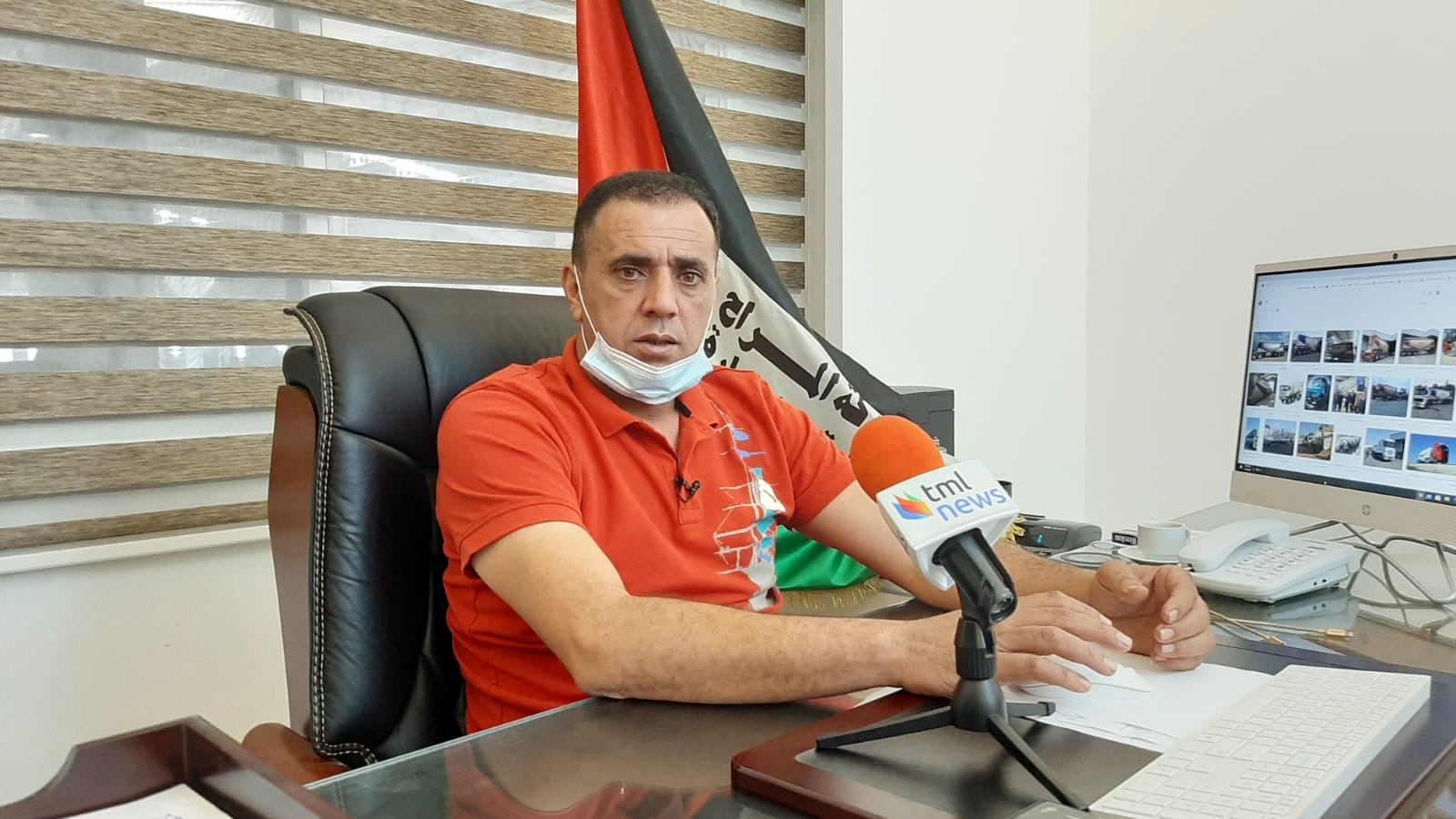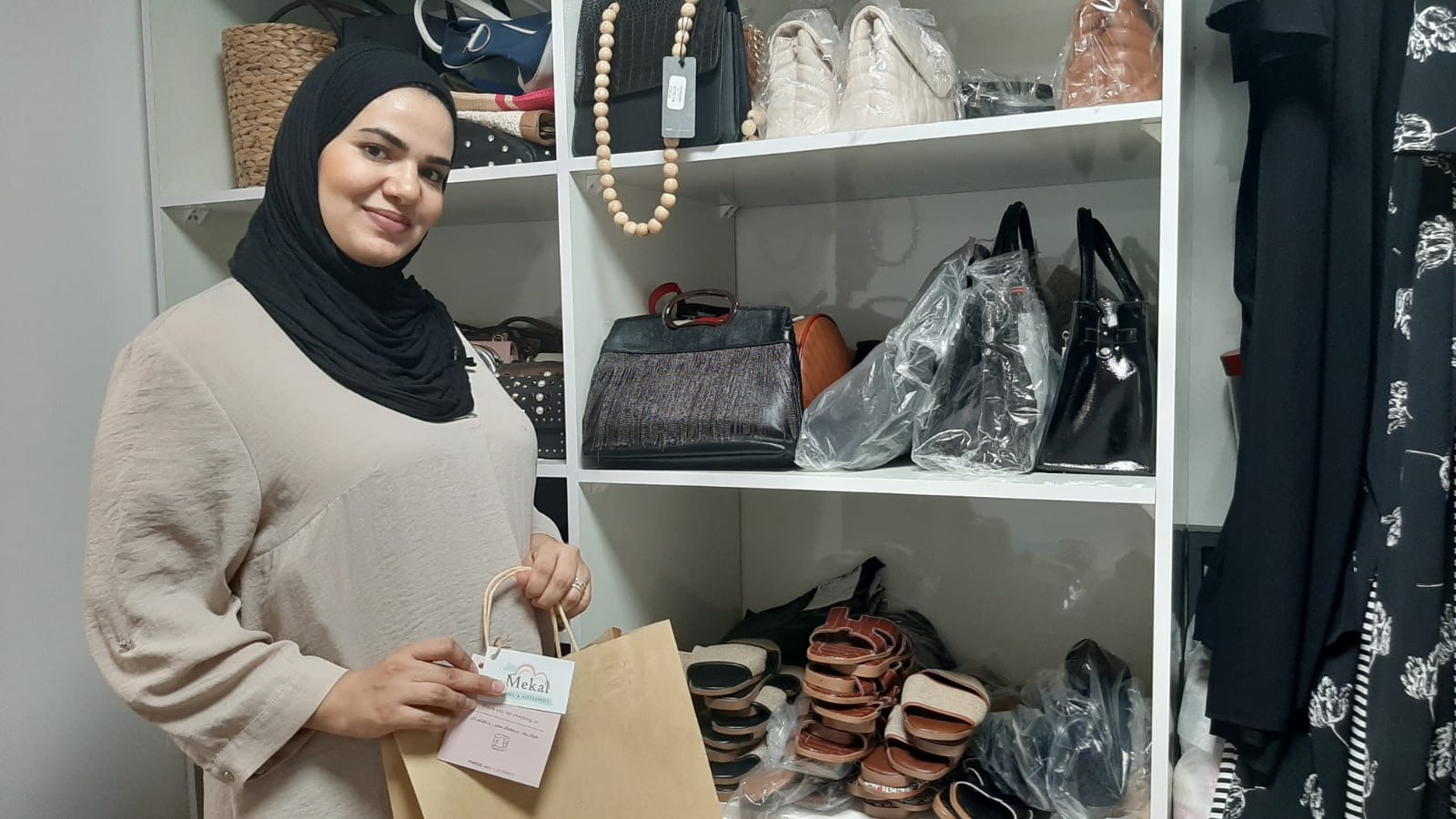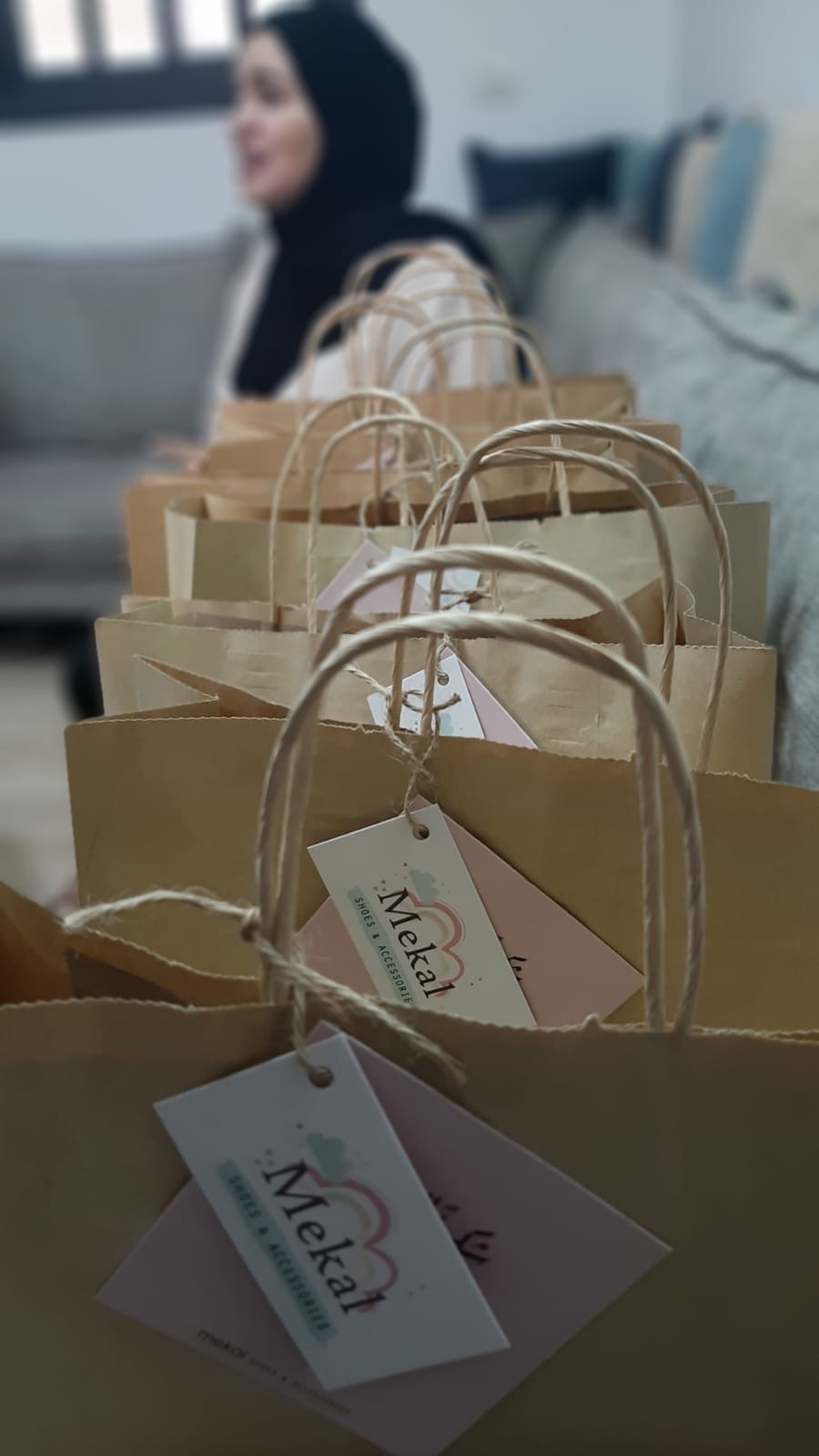New products, services spring up to satisfy the demands of a transformed business environment
As the novel coronavirus continues to spread across the globe, it is robbing businesses of billions of dollars in revenue, forcing many to close their doors. The situation is no different in the West Bank, where many retailers and small operators are being crushed.
But surprisingly, some small enterprises are finding new ways to make money, and some have even seen soaring growth.
Al-Marah Company for Commerce and Industry, a manufacturer of metal products in Jenin, in the northern West Bank, makes electronic gates that can sanitize persons and vehicles against COVID-19.
CEO Ghassan Jalbouni told The Media Line that his firm produces at least eight of the machines a day, and is looking to export them to neighboring countries.
“We first built a device and placed it at the entrance to the Health Ministry office in Jenin. We paid for it. Then things expanded and we got orders from hospitals, supermarkets and pastry shops all over Palestine,” he said.
Jalbouni said demand for sterilization devices is constantly rising and production is in full swing. He seized on the opportunity when news of the pandemic started to spread throughout the Palestinian territories.

Ghassan Jalbouni, CEO, Al-Marah Company for Commerce and Industry, Jenin, West Bank, July 12, 2020. (Noor Khatib)
“We are expanding our business to include vehicles used to sterilize streets and buildings,” he continued. Jalbouni is hopeful this latest line product will go regional. “We have supplied machines to the Jordanian and Saudi markets, and we are continuing to grow.”
The Palestinian Authority imposed a strict closure in the West Bank in early March, declaring a state of emergency that is still in effect. Shops shuttered, cashflow drying up and businesses sent staff home, adding to economic misery already in place.
But at Mekal, a small online women’s shoes and accessories retailer, business is brisk.
Newlywed Salam Abu Farha dreamed of having her own business one day. She told The Media Line that she could not afford to rent a physical store, so on the advice of her husband, she started her business online.
This holiday season, give to:
Truth and understanding
The Media Line's intrepid correspondents are in Israel, Gaza, Lebanon, Syria and Pakistan providing first-person reporting.
They all said they cover it.
We see it.
We report with just one agenda: the truth.



Salam Abu Farha, Owner, Mekal Shoes & Accessories, Jenin, West Bank, July 12, 2020. (Noor Khatib)
“I said to myself I have two options: Either I sit at home, which, knowing me, would be suicide, or I choose a suitable alternative. The alternative was an online shop. I sell shoes and bags. It has been a very sweet experience.”
The 25-year-old has a background in banking and finance. She launched Mekal at the end of April, as coronavirus outbreak was well underway. At first she panicked, but she felt she had no choice but to continue.
Despite it all, Abu Farha’s business has seen huge growth in recent weeks.
“The coronavirus came. I thought it would knock out my dream, but thank God, the opposite happened. Women have more free time to view my webpage while sitting at home, especially since they don’t have the option of going to the market,” she said.
Abu Farha is seven-months pregnant and she and her husband are expecting a baby girl. She named her business Mekal, the same name she is going to name her daughter.
With success comes challenges; she says Palestinians are not fully comfortable buying online, that it is still a fairly new concept for them.
“People distrust online retailers. They are afraid of scams. But I gained the confidence of customers by giving them exceptional service. I have a great exchange and return policy. I send my customers lots of pictures and details,” Abu Farha said.

Mekal Shoes & Accessories owner Salam Abu Farha with bags ready for delivery to customers, Jenin, West Bank, July 12, 2020. (Noor Khatib)
Abu Farha invests a great deal of time and effort in managing her webpage.
The pandemic has altered the habits of many millions of people, from how they work to how they live at home, to how they attend school.
And as demand for online shopping increases, businesses are increasingly seeking help from consultants, looking for ways to reach as many customers as possible.
Fatima Absi, general manager of Bright Image, a public relations and marketing firm in Ramallah, told The Media Line she was trying to keep up with demand.

Fatima Absi, general manager, Bright Image, Ramallah, West Bank, July 12, 2020. (Noor Khatib)
“In light of the corona crisis, we are focusing on e-marketing. We believe that the economy is declining dramatically at the same time that e-commerce is accelerating,” she said.
She and her staff are working round the clock producing marketing plans for new businesses.
The lockdown and other public health restrictions have forced business owners to shift their operations online, she said.
“With the coronavirus crisis and the ongoing closures, the only outlet is online shopping. There are a lot of sectors witnessing a major increase in demand and sales: The food sectors, the medical and pharmaceutical sectors, and clothing and shoes,” Absi said.
As Palestinians shelter in place, spending countless hours online, delivery services are thriving too.
EPS Logistics in Ramallah has seen a spike in demand for its delivery services.
Its founder, Tareq Hamed, a Palestinian American, said his two-year-old business was doing well during the corona pandemic.

Tareq Hamed, founder & general manager of EPS, Ramallah, West Bank, July 12, 2020. (Noor Khatib)
“During the first quarantine period, from March through May, our business doubled,” he said.
He told The Media Line that in the last two months, business had slowed down a bit, but he was still busy.
“People [competitors] learned from the first time; many delivery companies opened in Palestine since [the first lockdown]. Also, the economic conditions are difficult; many people aren’t getting paid. Lastly, the borders are closed. Most post offices internationally are closed,” Hamed said.
His delivery business and many others like it had helped the Palestinian economy to stay afloat, he argued.
“It helped businesses sell their products because they don’t want to keep stock in storage. They want to sell it, because they don’t want to keep stock in their warehouses; they want to sell it. It’s a big loss for them [to keep inventory unsold],” Hamed said.
It is early to know the extent to which these businesses will help to keep the Palestinian economy afloat during the pandemic, but they surely provide a sliver of hope that things will change for the better before too much time passes.